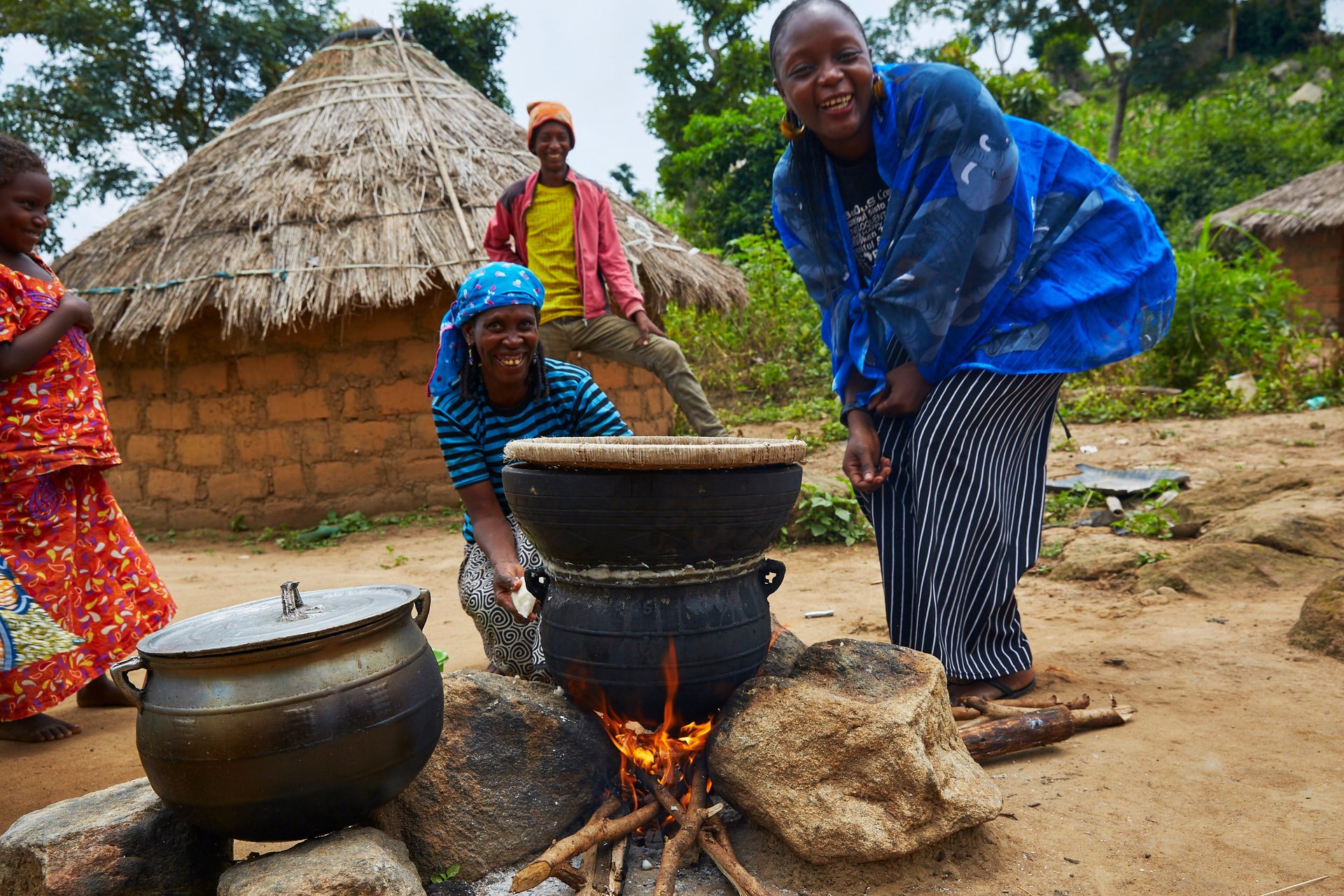A Sierra Leone chef is the first African to win the Basque Culinary World Prize
A Sierra Leone-born chef is this year’s winner of the Basque Culinary World Prize (BCWP), and the first African to bag the $105,000 prize.


A Sierra Leone-born chef is this year’s winner of the Basque Culinary World Prize (BCWP), and the first African to bag the $105,000 prize.
Fatmata Binta, based in Ghana, beat 1,000 nominees to emerge as the world’s top chef for showcasing sustainable nomadic culinary culture and exploring the diaspora of West African cuisine through her innovative ‘Dine on a Mat’ pop-up initiative.
“It feels great and humbling,” Binta told Quartz. “It is also a reminder to women that they can achieve anything, [no] matter their background and ethnicity. This prize is going to change lives.”
Binta has popularized the culture and cuisines of the Fulani people, who are nomadic pastoralists in west Africa. The Fulani make up the biggest nomadic tribe in the world, with more than 20 million people moving tirelessly across the Sahara Desert. ‘Dine on a Mat’ involves sitting on a mat, eating with your hands, and connecting with new people by telling stories that preserve your traditions. Despite Africans cuisines being ignored for long by the fine-dining mainstream, Binta’s award is now proof that cuisines from the continent can make it to the world stage.
Binta’s food aims to break down societal barriers
She was selected because of the impact of her initiative on her community and beyond. Conceptualizing the kitchen as a safe space, the BCWP press release said, Binta not only makes her dishes for “guests of the world,” she also prepares them for the communities from which these cuisines originate, presenting them as food that brings peace.
“With this, she sends the message to the world that sustainability must be the norm and not something exceptional, based on common sense, reinforcing female empowerment, and the matriarchal base of these communities,” Joan Roca, president of the BCWP jury, said in a statement.
Inspired by the challenges that women in rural Africa face, Binta said her innovation in food aims to preserve African culture through storytelling. She intends to use the prize money to build a community centre that will cater to the needs of Fulani women and collaborate with farmers across Ghana to feed more families.
“My favorite African cuisine is called ‘Lachiri eh corsan,’ which is simply steamed couscous made out of sun-dried corn and plain yogurt fermented the Fulani way,” Binta said. “It is not an everyday dish, it’s meant for celebration.”
To her, culinary culture should involve connecting with new people, improving food security, reinforcing cultural identity, breaking down societal barriers, and influencing positive change.
She has also founded the Fulani Kitchen Foundation, where interactive dinner experiences raise funds for community projects. Its aim is to meet social, educational and economic needs. More than 300 families from 12 communities, spread across four regions of Ghana, currently benefit from the initiative.